6 Mins Read
Be on the lookout for these brands turning mushrooms into juicy slabs of vegan meat.
When it comes to the top food trends to watch out for in 2024, almost every list mentions mushrooms. With its incredible textural properties as well as nutritional benefits, it’s no surprise that mushrooms are the powerhouse ingredient in many of the latest plant-based meat analogues.
While Time Magazine gave an honourable mention to roasted lion’s mane and shiitake bacon among many of Chef Todd Anderson’s mushroom-based creations in its food predictions list, Whole Foods Market trend-spotter Kantha Shelke boldly stated in Eat This that mushrooms will be “discover[ed]…in every food and beverage category and product developers will find ways to weave in ancient wisdom into new craveable food formats.”
Without further ado, let’s look at all the fun these seven vegan meat brands are having with fungi.
unClassic Foods
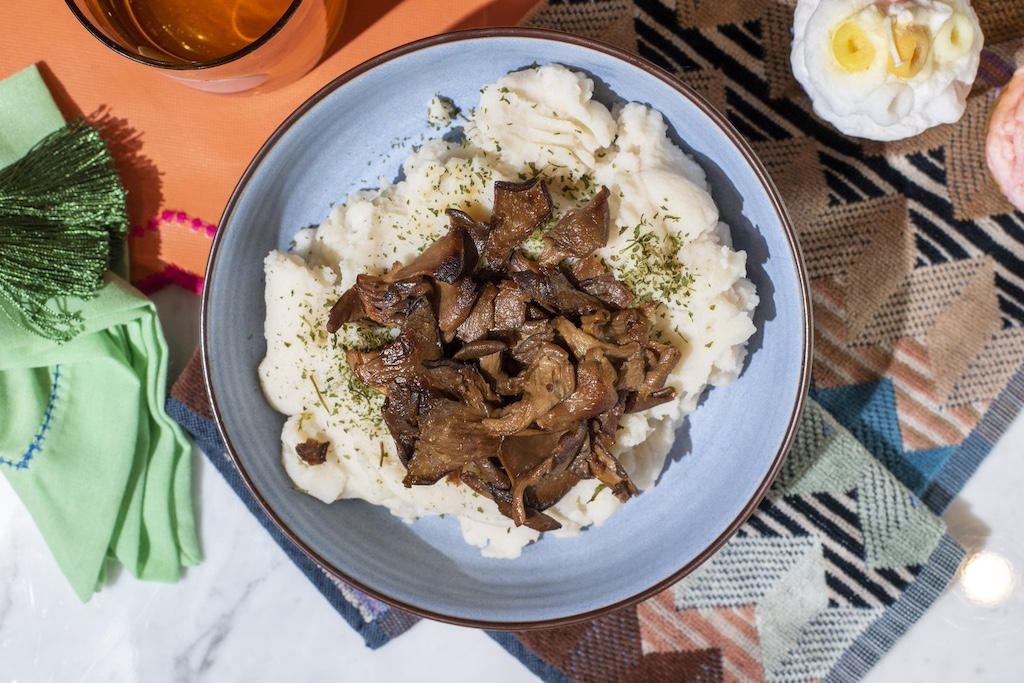
Founded in 2022 by food scientist Luiza Villela, unClassic Foods’ goal is to replace beef cattle with oyster mushrooms. “We don’t need to pretend to be meat,” the young startup’s mission statement reads. “We are cooler.”
Based in San Francisco, California, the company is poised to follow the David-and-Goliath story of oat milk vs. big dairy, reinventing the wheel with oyster mushroom ‘steak tips’ and even crispy fried ‘nuggets’ that resemble chicken. These products are pre-seasoned and pre-cooked, making it easy for consumers to reheat and eat. A few months ago, the startup showcased its products at The Good Food Institute’s GFC2023 conference in a Steak Biryani dish too.
Ultimately, Villela says she wants her oyster mushrooms to take centerstage, outstripping animal protein. “Mushrooms will be at the centre of the plate as the protagonist of the dish.”
Shroomeats
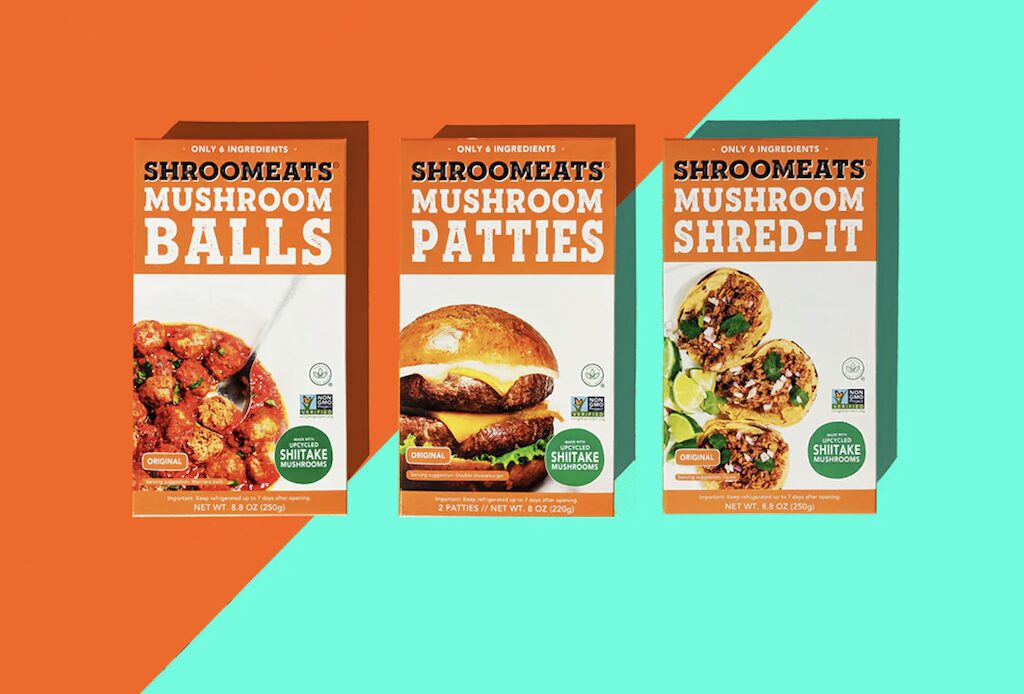
Using upcycled shiitake mushrooms along with a handful of other vegan-friendly ingredients, Shroomeats has created a range of alternatives including mushroom balls, patties and ‘shred-it’ shredded “meat”. Founded by three women, Pamas, Dissaya, and Mary, the startup hopes to displace meat consumption and its associated negative health impacts.
Aside from shiitake mushrooms, the brand uses pea protein, sunflower oil, salt, pepper and potato flour to create its range of vegan alternatives. Their shiitake mushrooms are sourced from an organic community farm in Thailand and is free of all 8 major allergens too. At the moment, Shroomeats’ range is sold online within the US.
Fable
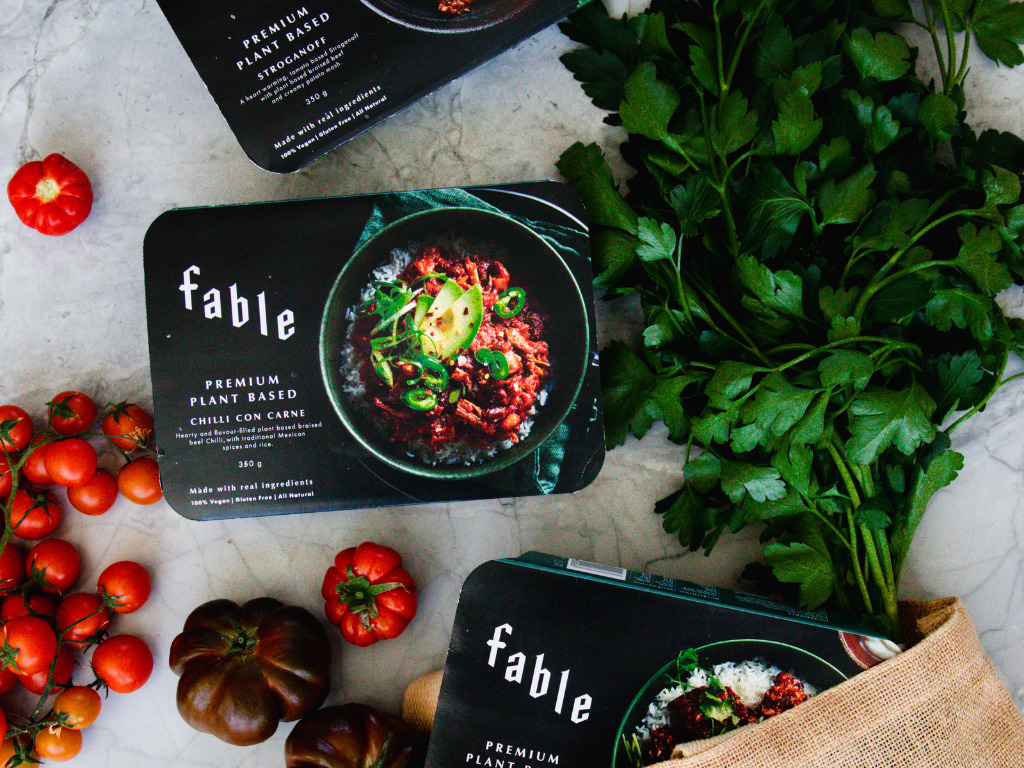
Another startup reimagining mushrooms is Fable. The Aussie company founded by food industry veterans Jim Fuller, Chris McLoghlin and Michael Fox is all about shiitake mushrooms, turning the uniquely umami-tasting fungi into a “fantastically meaty” alternative.
At the moment, the brand, which was one of the first to focus on whole mushroom alternatives, is available in thousands of restaurants and grocery stores, including in Australia, Canada, the UK and Singapore. Some of the most recognisable names include British health chains Planet Organic and Holland & Barrett, as well as burger joint Honest Burgers, Singapore’s SaladStop and Australian chain P’Nut Asian Kitchen.
As for the future, the startup, backed with a $8.5 million Series A in March last year, plans to further boost its R&D, accelerate its international growth and double down on its goal to make “minimally processed plant-based ingredients” popular.
The Mushroom Meat Co
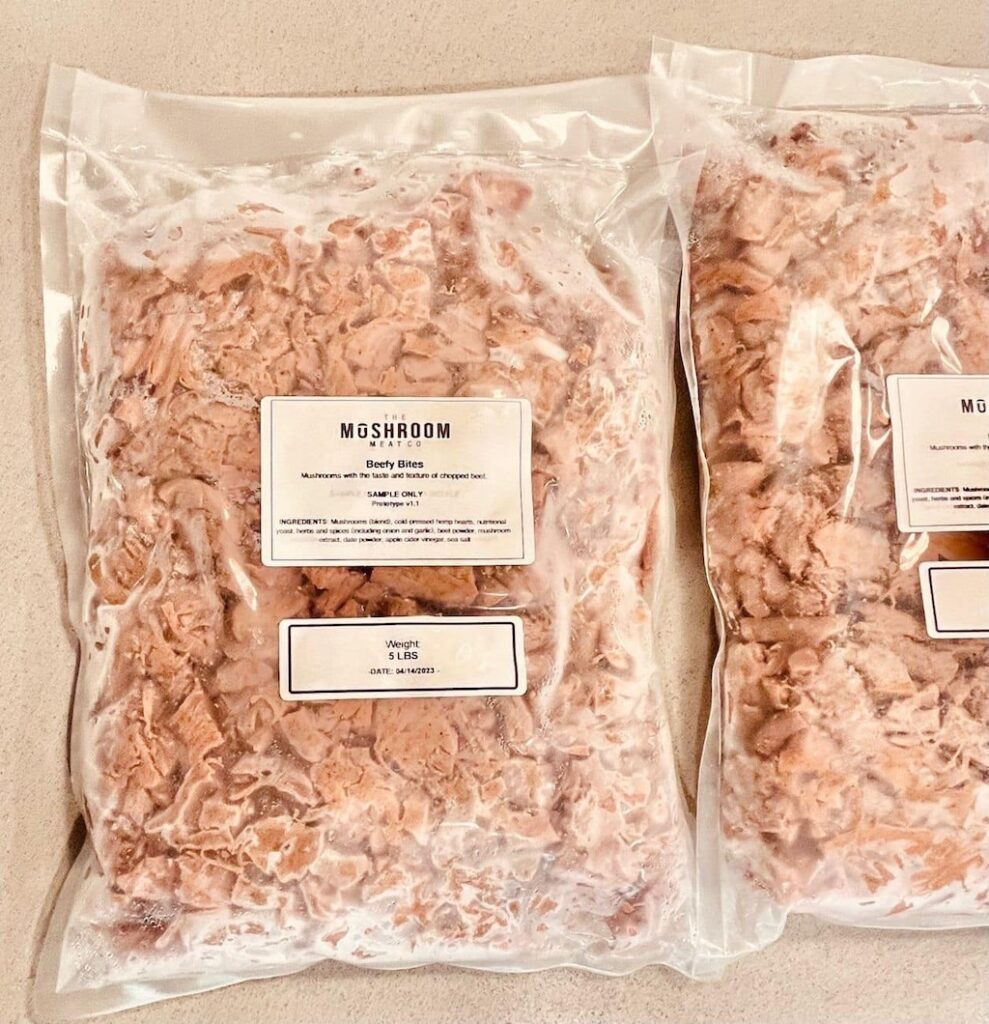
Founded by husband-and-wife duo Kesha Stickland and Dan Gardner, The Mushroom Meat Co is turning gourmet mushrooms into everything from porkless shreds to beefy burgers and beefy bites. Yet to be launched in the market, the company is focused on B2B sales and is even working on a mushroom-based ‘fat’ to mimic the fatty mouthfeel consumers love about conventional beef.
Aside from mushrooms, the company is using cold-pressed seed proteins, which are upcycled byproducts of industrial food production and is also free from the 10 major food allergens.
Adapt AgTech
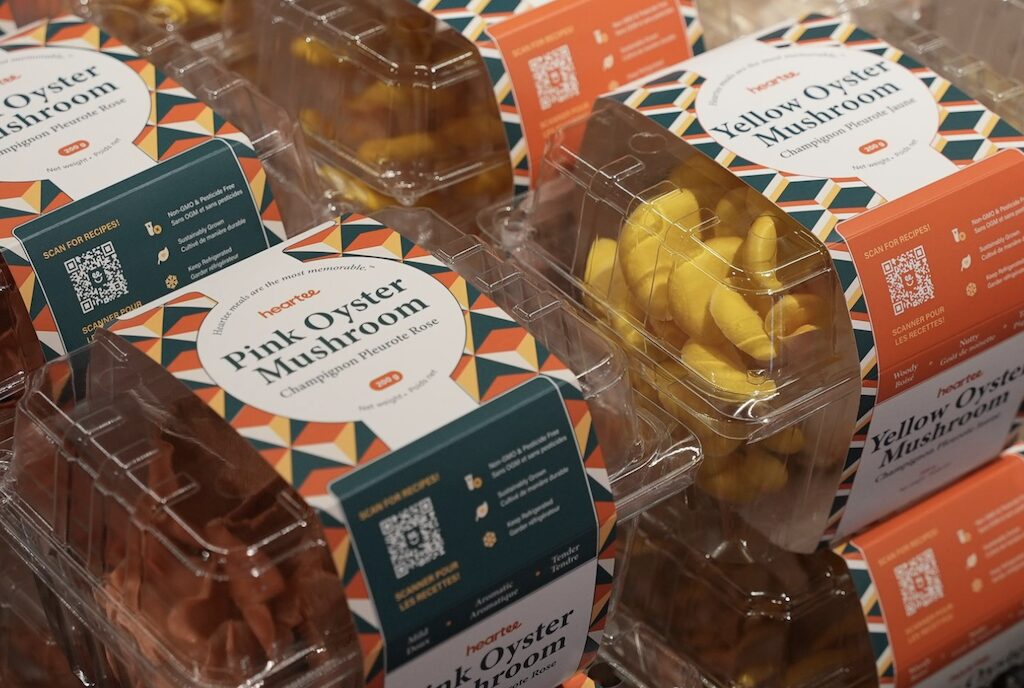
Indoor farming startup Adapt AgTech is doing something slightly different. Instead of producing mushroom alt-protein products, the Canadian vertical farming firm has created mushroom-growing shipping containers. These will be the powerhouses enabling everything from parking lots to logistical hubs into mushroom-growing locations, which allows restaurants and grocery shops to deliver mushrooms just steps away.
In these containers, you’ll find a range of speciality mushrooms, such as pink oyster, chestnut, pearl oyster, blue oyster, lion’s mane and king trumpet oyster mushrooms. All of these have different textural and mouthfeel qualities, making it a versatile ingredient to sustainably swap out meat without compromising on taste.
Last year, Adapt, also known as Heartee Foods, opened its very first shipping container in Austin, Texas in the US, and plans to continue expanding across locations in the country. “Our model is to create hyper-local farms in densely populated urban areas to reduce the distance from farm to fork,” CEO and founder Jonathan Murray told TechCrunch in February.
Big Mountain Foods
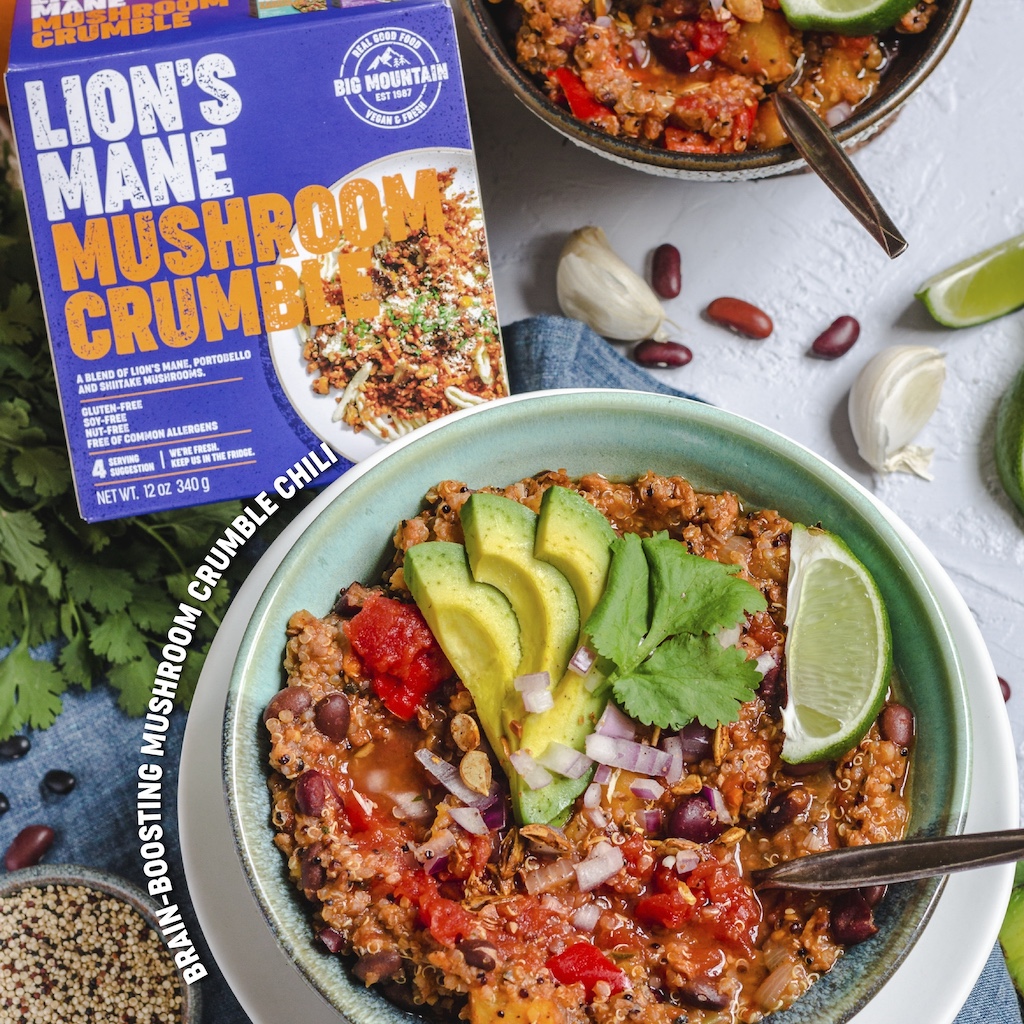
Based in Vancouver, Canada, Big Mountain Foods is big on mushrooms. The women-owned and family-led brand creates its vegan and allergen-free range with mushrooms, and you’ll find veggie links, crumbles, burger patties, bites and more.
Other ingredients incorporated into the range include sunflower seeds, broccoli carrots, peas and chia seeds, and its use of mushrooms is plenty, from lion’s mane to shiitake. At the moment, the brand is sold in several major retailers, including Albertsons, Safeway, Walmart and Sprouts Farmers Market.
Tupu
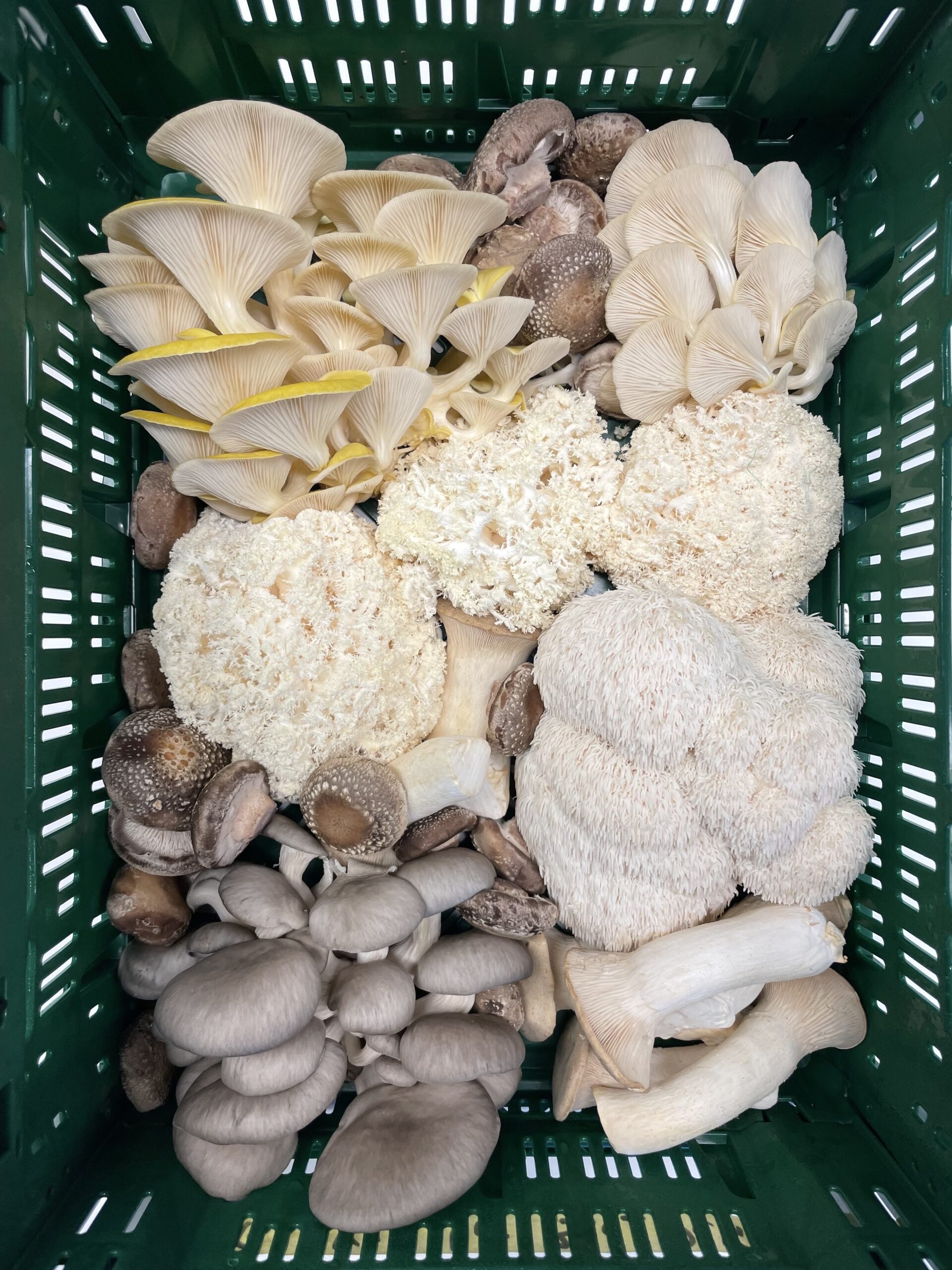
Tupu, a Berlin-based agtech company, is solving the mushroom production-and-transportation dilemma by enabling organic gourmet mushrooms to be grown directly in cities. Using modular farming technology, bioscience, IoT and AI, the startup helps make indoor gourmet mushroom farming economically viable.
Currently, Tupu’s portfolio of mushroom species includes king oysters, grey oysters, shiitakes, lion’s manes and yellow oysters, and they are keen to continue expanding their line-up in the years ahead with coral tooth, nameko and more. Armed with $3.2 million in seed funding which closed in October 2023, the urban farming company plans to get its mushrooms onto more plates across Europe via its B2B channel by partnering with restaurants.
At the moment, Tupu’s mushrooms can be found at a handful of Berlin restaurants, but will soon explore getting their products directly to consumers too.




